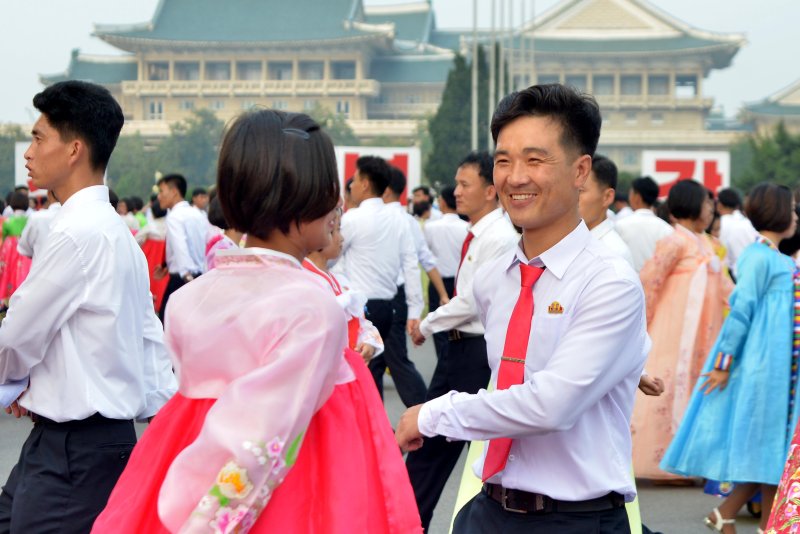North Korean elites in Pyongyang can no longer rely on the state distribution system for food, owing to tougher U.N. sanctions. File Photo by EPA-EFE
Oct. 20 (UPI) -- North Korean elites are no longer enjoying state-rationed necessities in the comfort of their Pyongyang apartments, and tough U.N. sanctions may be to blame.
A North Korean executive who travels between China and North Korea told Radio Free Asia a "special distribution channel" reserved for elites has been cut off in Pyongyang.
"Until now, the citizens of Pyongyang received rations through the 'food sales office,' but after the sanctions the distribution unit has been turned into a factory," RFA's source said.
With the distribution channel gone, Pyongyang residents have been unable to receive their rations, the source said.
Factories that are no longer in operation are part of the reason rations are not being distributed to factory workers, who get paid in North Korean food stamps.
While North Korea's state distribution system for food mostly collapsed following the famine of the '90s, the system has been in place for elites in Pyongyang and elsewhere.
Those elites are now "in a condition of shock."
According to RFA's source, "There was a hunch U.N. North Korea sanctions would have a significant impact, but we did not know it would be so bad."
But not all elites are having trouble.
Elites in North Korea's judiciary, military and science education sectors continue to receive rations, while those in administrative and social welfare fields are being denied theirs, according to the source.
A second source in Yanggang Province said independent farmers and traders in rural areas are "getting a kick" out of watching state rations-dependent peers struggling with a cut in resources.
The report of the sanctions' effects comes at a time when North Korea is reaching out to Australia, a U.S. ally, with a letter addressing the sanctions and condemning President Donald Trump.
Australian Foreign Minister Julie Bishop described the letter as "unprecedented," and said it was a sign the sanctions to curb the nuclear program is working.
"This is the first letter that we can find that any Australian foreign minister has received from North Korea... it's an open letter, this is not how they usually send messages around the world," she said.















